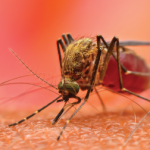Another important caveat of the study is that, unlike humans, mice don’t develop severe chronic arthritis. “Even though the virus replicates in mice, it doesn’t cause precisely the same disease in a mouse that it does in humans,” Dr. Miner says.
In addition, doctors likely wouldn’t treat humans with immune-modifying drugs during the acute phase, but rather during the chronic phase. Whether an antiviral therapy would be effective during this latter phase of disease is uncertain; the monoclonal antibody hasn’t yet been used in human patients and would likely first need to prove its mettle in a nonhuman primate—a natural viral host with a more human-like immune response—before getting the go-ahead for human clinical trials.
If it does pass muster, though, Dr. Heise says an antiviral agent could provide an important complement to any immune-suppressing DMARD therapy. “Having an antiviral therapy in combination with it ameliorates some of the concern, because you’re already suppressing viral replication,” he says.
Broader Applications
In the meantime, Dr. Miner says clinicians could potentially conduct trials comparing the FDA-approved drug, abatacept, to a placebo if they waited a month or two after a chikungunya infection and found no evidence of replicating virus in a patient’s blood. The team has initiated conversations with colleagues in Brazil, which has had ongoing chikungunya outbreaks, about conducting a Phase 1 trial there.
Eventually, Dr. Miner says, the study’s results may be more broadly applicable to similar inflammatory-arthritis-causing viruses and to viral diseases, such as influenza, that can wreak havoc through an immunopathologic reaction by the host. “Maybe, for viruses where immunopathology contributes to morbidity and mortality, we should be considering not only antiviral therapies, but also immune-modulatory therapies,” he says.
Bryn Nelson, PhD, is a medical journalist based in Seattle.
References
- Miner JJ, Cook LE, Hong JP, et al. Therapy with CTLA4-Ig and an antiviral monoclonal antibody controls chikungunya virus arthritis. Sci Transl Med. 2017 Feb 1;9(375). pii: eaah3438.
- Miner JJ, Aw Yeang HX, Fox JM, et al. Chikungunya viral arthritis in the United States: A mimic of seronegative rheumatoid arthritis. Arthritis Rheumatol. 2015 May;67(5):1214–1220.

